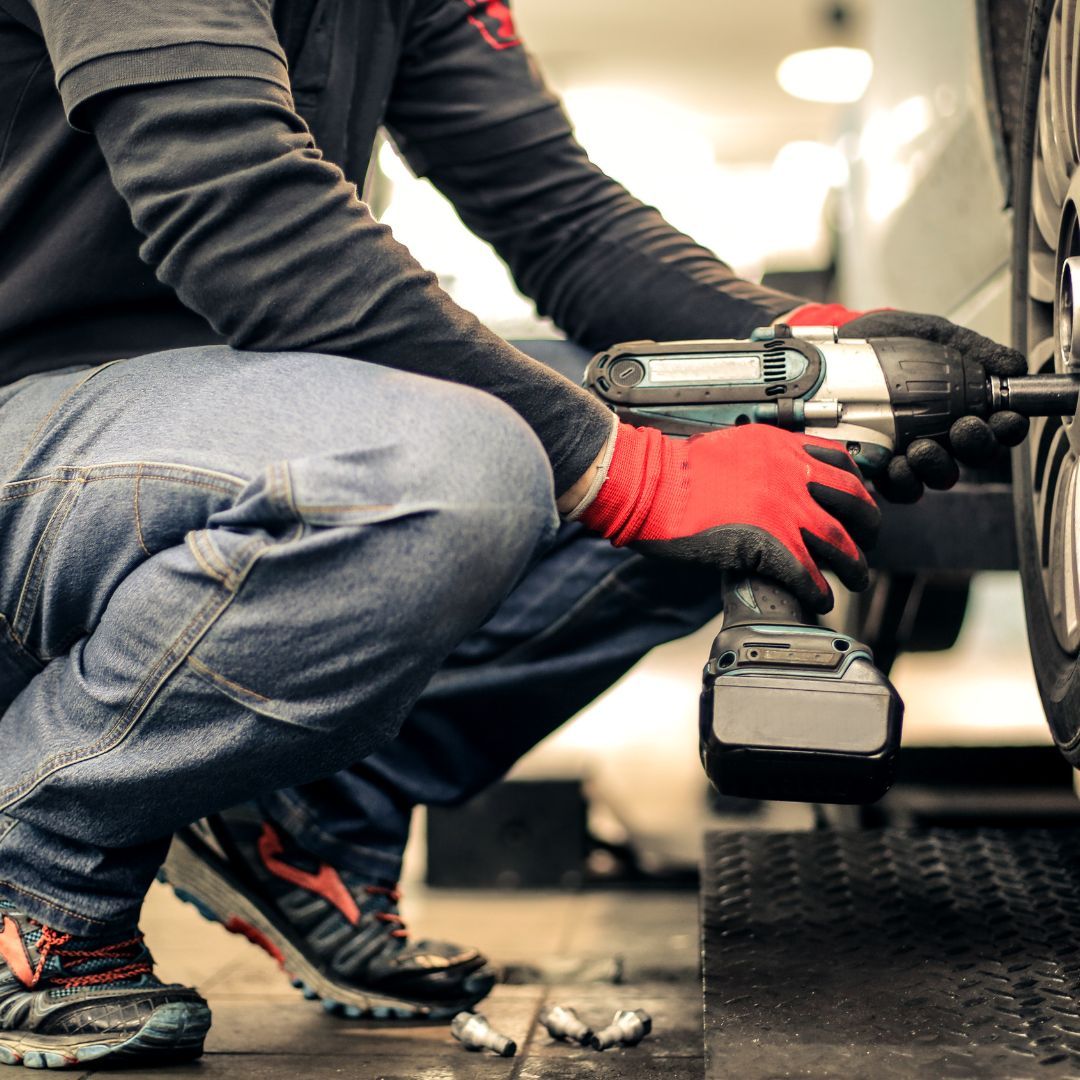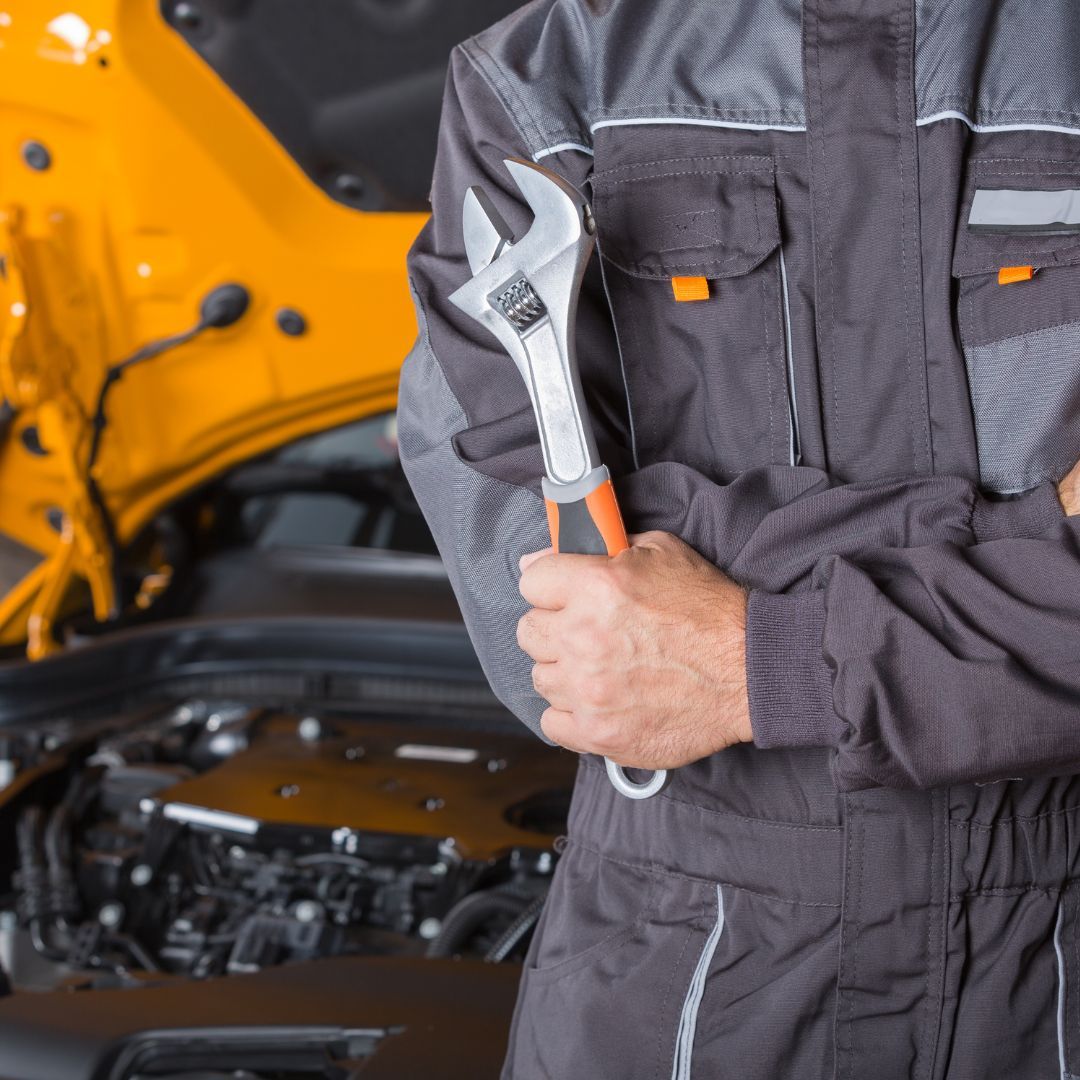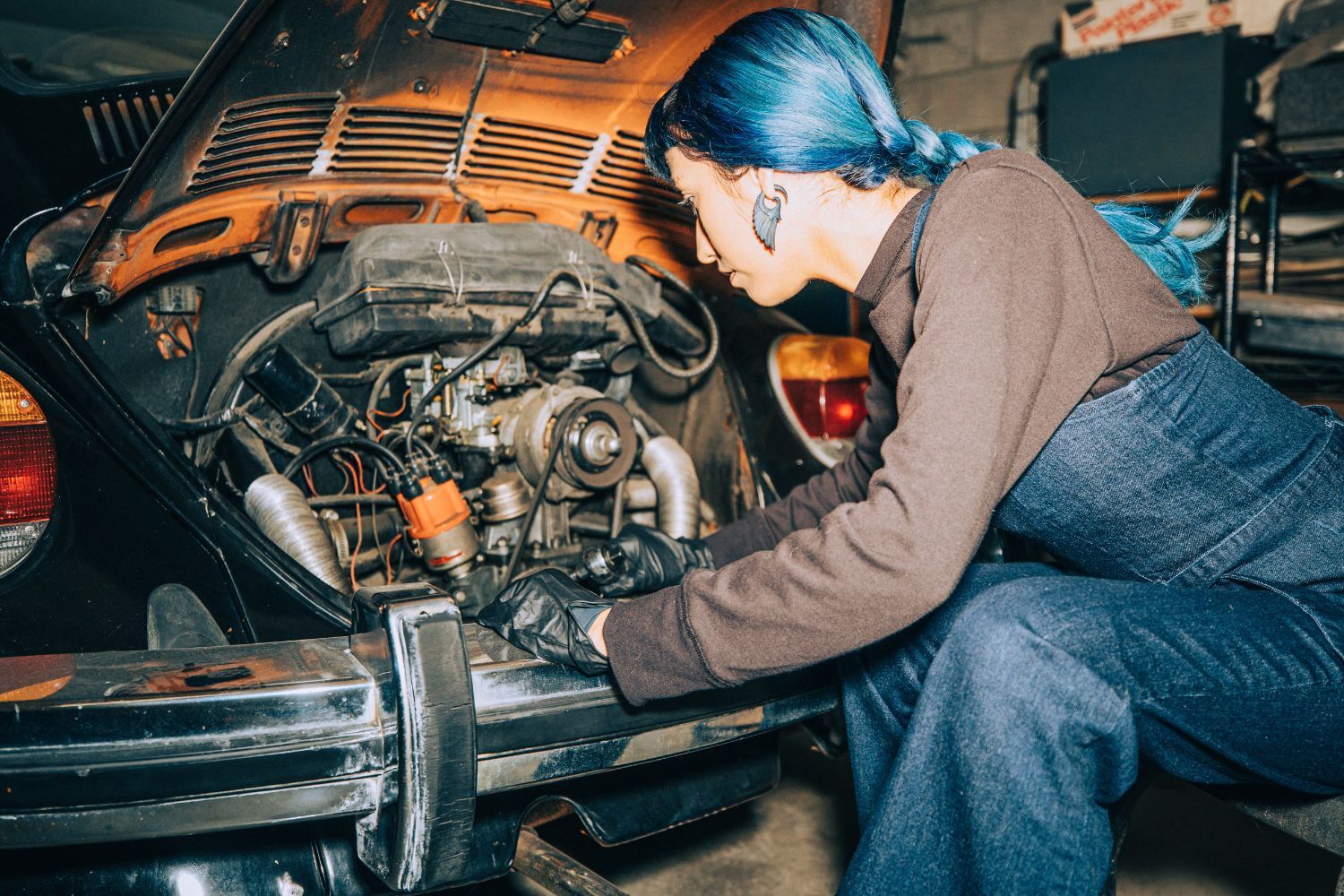>
Blog>
9 Car Noises To Look Out For (And What To Do)9 Car Noises To Look Out For (And What To Do)
Cars are complex things, there are many different mechanisms, moving parts and components that can fail. This is why the noises they make when faulty, can be a great indicator of what is going wrong.
Below we’ll explain what some common car noises mean, and when to be concerned with them and get them fixed.
Bumper knows a large repair bill on your car is the last thing you want to spend your money on, but sometimes repairs can't be avoided.
Look after your car and your bank balance by splitting the cost or repairs into with pay monthly car repair finance.
Noises when starting your engine
Clicking noise and the engine not starting
If you hear a clicking noise when you try to start your vehicle, there may be a problem with the electrics – and more specifically the battery in your car.
This clicking noise may be a sign that the battery does not have enough power to crank the engine because it is faulty, or your car has a parasitic draw somewhere in the system.
Most service centres or garages will be able to do a free battery health check. Batteries most commonly fail around winter time, when the engine is harder to turn over and the battery is at near zero temperatures.
Squealing sound when starting
If your engine squeals when started, it is usually the auxiliary belt. Also known as the fan belt or serpentine belt, it drives the ancillary components such as alternator, air conditioning pump and sometimes the water pump.
Because these components all draw rotational power from the engine, the belt is under a large load when first starting, this in combination with rubber belts becoming harder and less ‘grippy’ when cold, the belt can slip and cause a noise.
Is a squealing belt serious?
Whilst the noise will usually go quickly when it first develops, it will get worse the longer its left. In some cases the belt can simply be tightened and this will remedy the problem,
If the belt is not tightened or replaced to prevent the squeal, it will ‘glaze’ meaning the surface becomes shiny and no longer grips. Once this happens the belt will slip much more.
Whilst this does not appear to be a huge problem, the belt will eventually snap due to the unindented wear. A snapped auxiliary belt will leave you stranded, as the battery will no longer be charging, and in some cases the car will overheat, which could cause serious engine damage.

Loud Tapping When Engine Starts
If you sometimes hear a loud metallic sounding, high frequency tapping when the engine is started, that fades away after a few seconds, you may need to check your engine oil.
Some cars have hydraulic tappets on the camshafts. These are simply devices that allow your engine to run with less maintenance than the old fashioned alternative - manual adjusted tappets.
Because the tappets are hydraulic, they use the engine’s oil to operate. If your car's engine oil is low, it can take a few seconds for the oil to reach the tappets, which are right on top of the engine.
Learn how to spread your car repairs over monthly repayments
Are loud hydraulic tappets a big problem?
In some cars, the tappet noise is perfectly normal, even with the correct amount of oil in the engine. It is likely to be more prominent on colder days, and when the car is left with the engine off for a period of time - such as overnight.
If your engine oil is at the correct level and is the right grade for your car, and your engine makes a loud tapping noise when started every time, it may be a good time to take it to a mechanic.
Car Noises While Driving
It is important when trying to diagnose or describe a car noise that you think is causing a problem, to listen out for the particular circumstance that causes the noise. These details can help a mechanic diagnose the problem and fix your car faster!
Ask yourself if the noise is:
- Speed-dependent - Does it get faster/louder when the car does?
- Engine speed dependent - When the engine revs, does the noise get worse?
- Is it worse when cornering?
- Is it worse when the steering wheel is turned?
- Does it sound worse when accelerating or braking?
Clunking when driving over a bump
Suspension systems are made up of multiple links and joints. Over time these wear out and become loose, causing noises when the car drives over a bump or pot-hole at speed.
Another potential source of noises from the underneath of your car is the exhaust system. As this is suspended from rubber hangers, these wear out and allow the exhaust pipe itself to move excessively, banging into the underside of the car.

What causes a loud bang under my car when driving?
If you hear a loud bang from your car where the noise is a deeper tone and sounds as though it's coming from the back or front of the car, it could be the suspension. Common replacement parts are wishbone bushes, track rod ends and drop links.
If it appears to be coming from directly underneath and is more hollow and metallic in tone - like the sound of a metal pan being hit with a spoon, it’s more likely an exhaust issue.
Find out more about car warning lights and what to do about them.
Is your car making a "whirring noise" when driving?
A car making a "whirring noise" can be caused by any number of issues. For example, if there’s an issue with your power steering system such as a leak, you may hear this noise when turning the wheel, and especially when turned all the way in either direction.
You should address any issues with power steering as soon as possible with your local garage.
Also, if you hear a whirring noise that seems like it's coming from your engine then you'll want to get to your local mechanic quickly.
Other common sources of whirring noises and water pumps, alternators, air conditioning pumps and worn clutches - anything that spins, will have a bearing in, and can wear out.
A worn water pump can cause parts such as the pump pulley to wobble as they rotate causing the noise as you drive. If you don’t replace any faulty parts in your water pump, your engine may overheat and fail.
Car Making A Humming Noise
A consistent humming noise may have very different causes based on where the noise appears to be coming from and when it happens.
If the noise occurs when the car is stationary, it’s a sign that the issue may be a leak from a part that moves irrespective of whether the car is moving or not, e.g. your exhaust system.
What causes a humming noise when driving?
If the humming noise only happens when you’re driving it may be something more serious, such as worn wheel bearings. In short, wheel bearings allow the wheels of your car to rotate without friction or excess heat.
These bearings wear over time and typically need to be replaced every 80-120,000 miles, depending on the usage.
There are two main things to check in identifying a wheel bearing noise: if the noise get faster/louder with increased speed, and if the noise changes when turning at speed.
Wheel bearings are critical to the safety of your car, and will affect tyres and vehicle control if left too long - if the two points above are true about the noise in your car, take it to a mechanic as soon as possible.
Find out more about replacing wheel bearings.

Whistling noise
A whistling noise while you drive is most likely caused by a leak somewhere in your engine, maybe as a result of a faulty or cracked hose in your turbo or vacuum system.
These pipes are vital for keeping your engine running properly and would affect performance and economy. The parts usually don’t cost a lot to replace, but failure to do so will eventually lead to bigger problems.
Noise when turning
You may notice that your car makes a specific noise when your car is turning. Depending on the noise, it may signify any number of issues. It’s important to differentiate if the noise happens when turning the steering wheel, stationary or not, or whilst turning a corner.
What could it mean?
Noise when turning the wheel usually indicates a fault with the power steering system. Often the pump will cause a noise when the bearings become worn. It will usually coincide with heavier steering.
If your car makes a noise when driving round corners, such as at roundabouts, it could indicate a fault with the suspension or tracking, or maybe be a wheel bearing, as described above.
Another possibility is a worn CV joint. A Constant-Velocity joint is what enables the drive from the gearbox to be transferred to the wheels whilst turning. When worn they make a distinctive clicking sound, which increases in frequency with the speed of the vehicle, and volume with the level of steering angle.
Whatever the noise, sounds when you turn can indicate there is an issue with your steering and should be addressed as soon as possible.
Noise when accelerating or braking
Any engine issues will usually be more apparent when pulling off and accelerating uphill, than when at cruising speed. Similarly, braking noises will often get louder the harder the brakes are applied.
Loud roaring noise when accelerating
Typically heard from the top of the engine bay, and sounds like air leaking from the engine. You might also hear a noise from underneath the car.
What could this mean?
If the noise is upfront, a turbo pipe leak could make a roaring noise, this will be accompanied by a lack of power and often more smoke than normal from the exhaust.
At the other end of the spectrum, an exhaust leak from underneath the car could also cause a louder noise when accelerating. This will often be alongside a strong smell of exhaust fumes inside the car.
Both noises would be easier to hear from outside the car. Try having someone gently rev the car's engine - in neutral - whilst you hear from the outside.
Worried a noise in your vehicle may be a sign of something serious? Use Bumper to find your local garage and pay for repairs in manageable monthly instalments, at no extra cost with a car repair loan.
Author - Joseph Law
Joseph has been writing about cars for over seven years and writing for Bumper for over two, blending his passion for automobiles with a talent for storytelling.
Joseph has written about engineering and cars for Autozilla, Komaspec, and several engineering manufacturers. When he's not writing or tinkering with one of his five cars, Joseph dreams of owning an Alfa Romeo 33 Stradale.
Related Posts